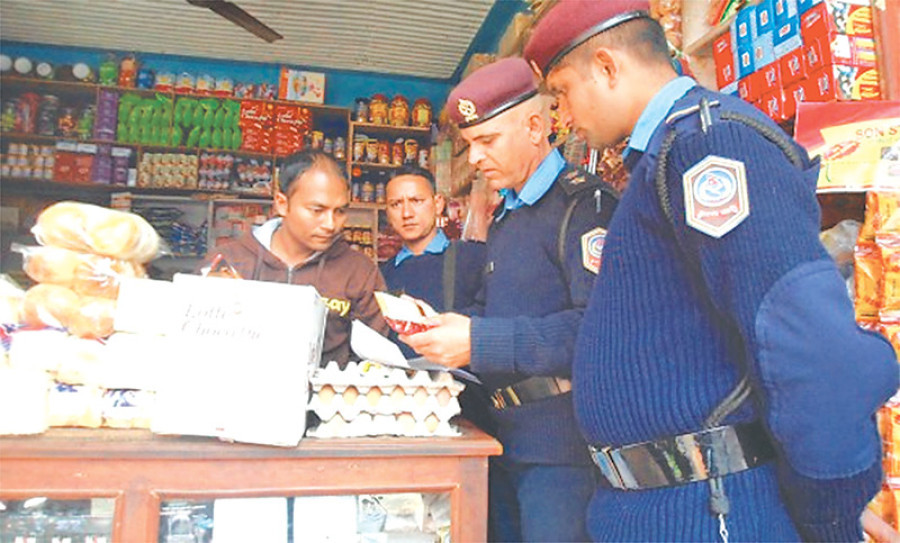Editorial
Missing market watch
Those meant to carry out market inspection lack the right equipment and the required expertise.
As incessant rains cause havoc across the country, the risk of spread of water-induced diseases has heightened. The Kathmandu Metropolitan City in the meantime is stepping up its market monitoring. The market inspection committee headed by Deputy Mayor Sunita Dangol will reportedly enforce stringent measures to control waterborne diseases such as cholera by curbing the sale of adulterated food products. The measures will also help regulate the use of pesticides in vegetables. She has directed officials to come up with concrete plans and spring into action to secure public health.
This is a timely action. Few food products sold in the market are safe to consume. Even medicines and bottled water are unsafe. A recent study carried out by the Health Office, Kathmandu found nearly all drinking water samples, mostly of bottled water, taken from Kathmandu city were contaminated with faecal coliform. Separately, the Department of Drug Administration, in a recent test, found an antibiotic for children being sold in the market since January 2022 was substandard.
Consumer rights activists and other concerned stakeholders often—and rightly—question the effectiveness of such irregular market inspections. Be they efforts of municipalities, the Department of Food Technology and Quality Control or any other agency, such market inspections are carried out only as public stunts. If the metropolitan office is serious about making the campaign result-oriented, it will first need well-equipped and well-trained personnel to undertake it. Currently, those entrusted to carry out market inspection neither have the right equipment nor the required expertise. For example, during their inspection, the KMC officials suspected some water jars they inspected were contaminated but they couldn't immediately conduct a test as they don’t have their own lab. “But when we take them to the government lab, we find that it can’t test more than 10 samples [a day],” said Deputy Mayor Dangol. Authorities must address such basics if the market inspections are to have the desired effect.
Another common practice of government agencies is to enforce blanket bans on certain practices if they find problems with them. It isn’t a prudent way to solve problems. For instance, top officials at the City even plan to impose a blanket ban on the sale of spicy street food items such as “panipuri” and “chatpate”. There is no dispute about an urgent need for better monitoring of street food. But instead of imposing a total ban, the focus should rather be on conducting regular inspections of such vendors and making sure the foods served are safe to consume. Besides, the municipality and the department, the Parliament’s thematic committee on consumer rights can play a vital role in this connection. For best results, these bodies need to closely cooperate and collaborate by bringing their individual expertise to the table.
Among other arrangements, the Consumer Protection Act 2018 has a provision for a consumer court that primarily deals with consumer-related disputes, conflicts and grievances. Efforts must thus be directed towards establishing the court at the earliest. That would be a huge step towards protecting the rights—as well as the health—of Nepali consumers.



 17.12°C Kathmandu
17.12°C Kathmandu













